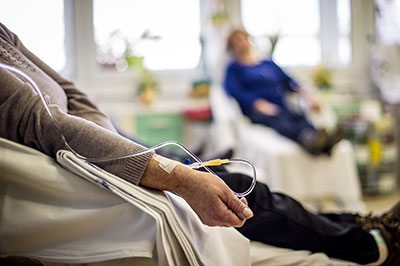Although several studies suggest that most patients with testicular cancer have normal testosterone levels, these levels tend to decline after starting chemotherapy. Once in the state of decline, a lowered amount of testosterone levels is associated with many health issues.
Testosterone is a powerful hormone that is responsible for the development of reproductive organs in the fetus. When a person hits puberty, testosterone aids the development of secondary sexual characteristics. The serum levels of the hormone diminish with age and certain illnesses.
Testosterone Levels After Testicular Cancer
All diseases of the male genital system can have an impact on testosterone, and cancer causes such a problem. The causes for this are as follows:
– There is damage to the cells that are key in the production of testosterone
– There is damage to tissue because of chemotherapy
– Surgical removal of the testicles
– Endocrinological abnormalities that happen because of stress and cancer
Chemotherapy and Serum Testosterone Levels

The Health Problems Associated with Low Testosterone
Lately, scientists have noticed that there is a connection between low testosterone and other health issues. Your odds of developing this condition of lower testosterone levels increase for those men who are obese, diabetic or hypertensive. Research into the relationship between low testosterone and other health problems continues on and includes a link to health issues such as diabetes, obesity, metabolic syndrome, heart disease, depression, low libido and hypertension.
There is a connection between diabetes and low testosterone and men who have low testosterone are more likely to later contract the illness. The testosterone hormone assists the body in using insulin more efficiently, therefore, men with low testosterone can have trouble with insulin resistance. They need more insulin to stabilize their blood sugar levels.
About half of men with diabetes test positive for low testosterone. One option for overcoming this it seems is testosterone replacement therapy, which can improve blood sugar levels.
When it comes to the link between obesity and low levels of testosterone, there is a close relationship. In the body, fat cells break down the hormone to estrogen, in addition, obesity and the increased fat cells diminish levels of SHBG, a protein that transports the testosterone hormone in your blood.
Weight loss can increase your levels of the hormone and supplements or natural approaches can also help men lose weight and thus maintain higher testosterone levels over time.

– Abnormal cholesterol levels
– Hypertension
– Obesity
– Elevated blood sugar
Among the number of lower severity issues this can cause, the condition can also increase your risk of heart attack and stroke. Research indicates that men with low testosterone are more prone to metabolic syndrome, as there are several studies showing a significant difference in testosterone levels between those with metabolic syndrome and those without. As previously stated, testosterone replacement can improve blood sugar levels and obesity.
Testosterone has some effects on the arteries. Several scientists believe that testosterone is linked with higher incidence of heart disease and hypertension in young men. However, low testosterone is associated with insulin resistance, obesity and diabetes. Each of these issues increases the risk for heart trouble. Men with diabetes and low levels of the hormone also more often have a hardening of the arteries.
Some amount of the hormone may be required for your arteries to protect them from harm. There are no studies that indicate that testosterone replacement can protect you from a heart attack, however, there is a link between it and some other health issues.
Low testosterone is beginning to show as a factor that creates some of the known effects symptoms, or can appear to be symptoms, of depression, and thus has been linked with a higher incidence of depression. As with many other conditions, the exact cause and effect relationship between depression and low testosterone has yet to be pinned down, however, men who have low levels of this hormone often experience fatigue, increased irritability and a decreased sex drive. These symptoms are also common symptoms of depression.
While the general problems with erectile dysfunction (ED) are typically claimed to be as a result of low testosterone, and androgen does play a role in erections, there is a lack of clinical evidence directly linking low testosterone as the sole contributor to the inability to achieve an erection. However, there is a link to decreased sex drive, which can play a large factor in the inability to achieve an erection.
This is one of the more complicated issues associated with low testosterone. While men with hypertension are almost twice as likely to have low levels of the testosterone hormone, too much testosterone will actually increase your blood pressure. This all has to do with the effects that testosterone has on the blood vessels. In current studies of hypertension, new evidence on genomic and non-genomic mechanisms of testosterone and its action on vascular smooth muscle cells in arterial hypertension is presenting evidence for further aggravation of hypertension.
In conclusion, being a patient with testicular cancer can have an effect on every aspect of your life, including your testosterone levels. This is particularly the case if you have initiated chemotherapy. While chemotherapy may solve the initial cancerous problem, it may lead to further health issues you will want to keep an eye out for, as low testosterone is associated with several health problems.


